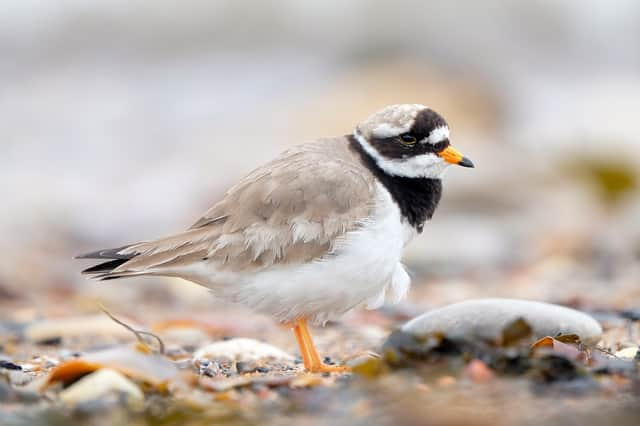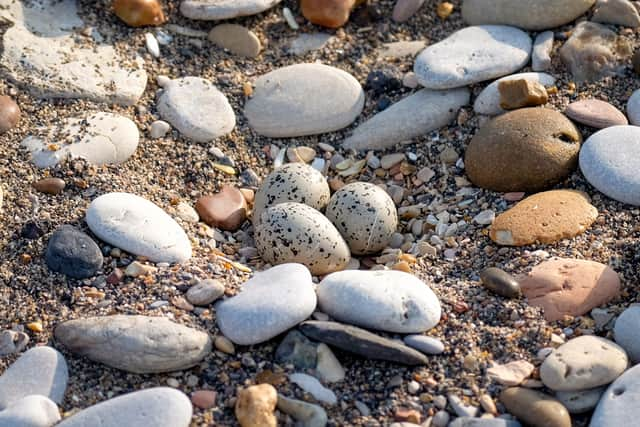New protection zone on Jackie’s Beach in Whitburn to help protect nesting birds


Visitors to a much-loved coastal spot are urged to be mindful of a new nest of wading birds in a temporary protection zone on Jackie’s Beach.
Ringed plover are small wading birds that nest on beaches.


However, due to their numbers declining by over 50%, they have been placed on Red List of conservation concern.
Advertisement
Hide AdAdvertisement
Hide AdJackie’s Beach, in Whitburn, is known for having multiple pairs breed each year although most nests fail to fledge any chicks due to disturbance.
Their brilliant camouflage allows them to be hidden in plain sight making them at risk of trampling from humans and dogs. This means that few, if any, chicks survive to fledge the nest.
This year, for the first time, South Tyneside Council is delivering a project with the landowner’s permission, to help protect ringed plover nests.
Signage and temporary fencing have been put in place in the area advising the public to be aware of the nesting birds.
Advertisement
Hide AdAdvertisement
Hide AdThe signs request people to keep dogs on leads and stay well clear of the fencing.
Chicks will view humans as predators; therefore, they will lie flat on the ground and rely on their camouflage, increasing their chance of being crushed by people or dogs.
Councillor Ernest Gibson, Lead Member for Neighbourhoods and Climate Change, said: “Jackie’s Beach is a wildlife hotspot, from the nesting ringed plover to the vegetated upper beach hosting an array of wildflowers and butterflies along with a diversity of marine life in the intertidal zone and seals and dolphins offshore.
It is important that we provide this wildlife with space, reducing our disturbance, so we can enjoy the wildlife from a distance.”
Advertisement
Hide AdAdvertisement
Hide Ad“Although protected within the fence, disturbance can cause parents to abandon the eggs so please give the fenced area lots of space.
"Once the chicks hatch, they will be up within hours running across the beach, which is why giving that space and keeping dogs on leads reduces the chance of the chicks getting trampled both inside and outside the fenced area.”
A wonderful team of volunteers have been assisting the project by monitoring the nests and watching the activity on the beach, engaging with people and sharing information about the project and encouraging others to give the wildlife space to thrive.
Due to the decreasing number of ringed plover in the UK, the project aims to protect the endangered species by urging the public to be aware of the increasing need to keep the birds safe in their own habitat.
Comment Guidelines
National World encourages reader discussion on our stories. User feedback, insights and back-and-forth exchanges add a rich layer of context to reporting. Please review our Community Guidelines before commenting.